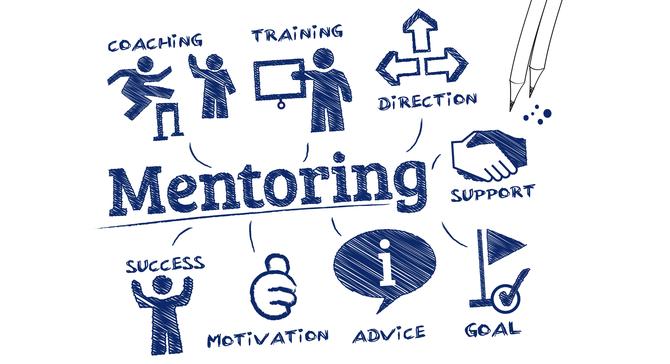Mentoring can be a transformational relationship, one that can lift career trajectories through powerful support and encouragement across industries and sectors. In particular, mentoring plays a key role in the development for nearly all executives.
Yet women often miss out on this crucial step. While women make up at least half of university graduates, their numbers diminish in the executive and c-suite level. This is despite the fact mentoring is important for women’s career progress and a valuable resource for leadership.
One of the challenges is access. While women are eager to take on mentoring roles and support other women, they are not being asked or given the opportunity often enough, according to a global study by DDI. In particular, it cited research that found mentorship is especially important for women’s success because they often have difficulty building social capital at work, particularly in settings where there are fewer women.
“Mentorship is imperative in our industry to support the growth and success of women every day, and I have found the experience to be invaluable for mentees and mentors alike,” Versa CEO, Kath Blackham, tells CMO.
Research shows a gender-diversified c-suite also has a positive impact on business growth. When it comes to mentoring to help support women progress, organisations need to provide them with the opportunities, support the time commitment, and everyone will benefit, the DDI study noted.
Redressing the balance
In some cases, women who may have missed out on mentoring opportunities themselves are working to redress this for the next phase of women. ARQ Group director of customer and marketing, Georgia Swanson, is one of these proactive operators and has helped establish an internal mentor program.
Swanson is involved in both the diversity and inclusion strategy, which includes a prioritised focus and clearly defined targets for gender diversity by 2025 and in establishing an internal mentor program that aims to support, develop and grow its people.
“Having never had a mentor or a positive female role model to look up to in my early career, I’ve made it my mission to become exactly that for the next generation of female leaders,” she says.
The business recently launched a pilot program, ARQconnect, with 10 mentee and 10 mentor participants who will be meeting regularly over an eight-week period to define goals, steps to achieve them and discuss approaches and support needed.
“The insights and learnings from this pilot program will be vital to our long-term strategic and operational mentor program that will be rolled out to all 500+ ARQ individuals,” Swanson adds.
Creating opportunities with mentoring
RMIT Online marketing and student acquisition director, Anshu Arora, is prioritising mentorships within her own team and the broader business. She’s well aware of the value of mentoring in organisations and more broadly across the economy.
“Mentoring is a valuable development tool for both the mentee and mentor, and it's also a strategy to retain staff, to reduce the impact of losing talent and enhance engagement,” Arora says.
RMIT’s report on the value of digital skills found over half of Australian employees are looking for potential opportunities in the market and that close to a third see learning and development as an incentive to move to another job.
“As a woman, mentoring was key to my career. The constant learning and connecting with like-minded professionals has really helped me push past stalled progression, really strengthened my leadership and management skills, and I've made some valuable connections along the way," Arora says.
The value of paying it forward can’t be underestimated. It’s why Cheetah Digital has internal support groups to help drive relationships for those who seek mentorship from leaders who share similar paths. Its Employee Resource Groups (ERGs) give people an opportunity to share experiences, foster allyship, and network to form mentorships across the business.
For example, its Women in Tech (WiT) is a women-led group that platforms women in leadership positions, allowing them to share their experiences to guide women on their career path. There are ERGs for employees of diverse sexuality, cultural backgrounds, and/or have additional needs. It enables nuanced experiences of intersectional groups, including the unique stories of women, to be heard.
“We know powerful mentorship is rooted in more than being a teacher. Genuine and impactful mentorships involve commitment and action, where the mentor is dedicated to helping others shine and succeed,” explains Cheetah Digital chief customer officer, Michelle Curless. “It’s saying: ‘I have travelled this path, and I know the way to success. I’ll teach you the terrain’.”
But even though there are willing mentors out there and examples are around, it’s clear women have trouble finding other women to be mentors, according to the DDI study. Equally, it found women need to be on the lookout for the right mentors to ask. It suggests formal mentoring programs are invaluable in helping to formalise these mentoring connections.
We know powerful mentorship is rooted in more than being a teacher. Genuine and impactful mentorships involve commitment and action, where the mentor is dedicated to helping others shine and succeed
Cheetah Digital chief customer officer, Michelle Curles
Host/Havas has Femmes Forward, for instance, an accelerator program designed to prepare high-potential female employees to advance their careers at a faster pace.
“The program is a unique combination of career vision setting, leadership awareness and development leveraging the Lumina Spark skills-based training and mindfulness exercises,” Host/Havas CEO, Laura Aldington, says.
Of course, it’s not just established organisations that need mentoring mechanisms. Women are under-represented in the startup space, something that targeted mentoring could help address. In response, Host/Havas launched the second iteration of Havas Hustle in Australia in 2021 focused solely on mentoring women entrepreneurs by providing them access to free advice and support via a one-hour online meeting with one of over 40 specialists from across the business.
“It came about because over the past 20 years, the number of women-led businesses in Australia has increased by just 3 per cent and women run less than one in three businesses,” Aldington says. “Since the pandemic began it has only worsened, with women-led businesses accounting for just 22 per cent of all registered startups in 2020.
“Despite data showing that startups run by women tend to perform better than average, they are under-represented in this vital sector. We were thrilled to mentor over seventy women-led businesses through the scheme.”
The essential element of pathways
To make headway in women’s participation and promotion via mentoring, it’s not as simple as launching a program. Organisations already need to be providing a supportive space for women to grow in their career without unnecessary hurdles, before getting to the point of mentoring women, according to Shape Australia group executive – people, brand and communications, Kate Evans.
“At Shape, we created a robust gender action plan designed to create and maintain a compelling employment proposition for women, which includes individualised career plans, tailored training and networking opportunities,” Evans says. Female participation has been steadily growing and from this base the team has looked to build mentoring opportunities. It recently launched an internal sponsorship program to accelerate career advancement for female project engineers and project managers.
“I work closely with the sponsors to ensure they understand the individual’s career development and flexibility goals and use their influence and insights to support these women to excel in the industry,” Evans adds.
REA Group is another organisation that’s created several pathways for women to make the move into tech. One of these is the Springboard to Tech Program, which offers a personalised approach including formal training, mentoring and coaching and an offer of a placement at the end.
“The Women in Tech programs not only support women transitioning into tech roles, but also help them to step up into more senior positions. Since inception, we’ve seen the number of women in our tech roles climb more than 40 per cent,” says REA Group general manager of consumer marketing, Sarah Myers.
While women remain underrepresented in technology roles and industries, Myers sees further need to have conscious conversations about diversity and inclusion. “Learnings need to be shared across teams, businesses and industries,” she says.
Shopify APAC integrated marketing lead, Bertie Ocampo, has learned a lot from having been mentored in the past. And it’s given her the confidence to then mentor women to share that experience. She’s also found it helps to have mentoring from a slightly different perspective.
“I believe the best advice often comes from mentors who are from a different field than yours because they bring an outside, fresh perspective. They are in a better position to give honest, unbiased feedback that can better help frame your level of thinking,” Ocampo notes.
“My biggest misconception was that mentors may not want to share everything they know and keep some of the ‘secret sauce to success’ close to their chest. This could not be further from the truth. I have been very fortunate to soak up knowledge, wisdom, advice and learnings from a number of very passionate and inspiring women throughout the years.
“Now as a mentor myself, I want to pay it forward by doing the same thing, especially with young women coming to me for career guidance and advice. I share everything – both good and bad – as being honest, transparent and vulnerable is what people connect with and what helps set a trustful foundation for the relationship.”
Don’t miss out on the wealth of insight and content provided by CMO A/NZ and sign up to our weekly CMO Digest newsletters and information services here.
You can also follow CMO on Twitter: @CMOAustralia, take part in the CMO conversation on LinkedIn: CMO ANZ, follow our regular updates via CMO Australia's Linkedin company page











